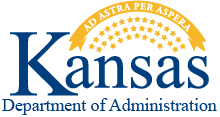Bulletin 20-06 - Fair Labor Standards Act (Exempt Employees)
1.0 SUBJECT: Fair Labor Standards Act (FLSA) Procedures Regarding Exempt Employees
2.0 EFFECTIVE DATE: June 01, 2020
3.0 DISTRIBUTION: State HR Directors
4.0 FROM: Kraig Knowlton, Director DATE: June 01, 2020
5.0 - PURPOSE: This Bulletin is being issued to update and replace Bulletin 09-04 following the receipt of information from the United States Department of Labor (US DOL) regarding the status of exempt employees during a furlough. Bulletin 09-04 is hereby revoked.
6.0 - BACKGROUND: Based on information from US DOL concerning the treatment of exempt employees during a furlough situation., deductions from the pay of an employee of a public agency for absences due to a budget-required furlough shall not disqualify the employee from being paid on a salary basis except in the workweek in which the furlough occurs and for which the employee's pay is accordingly reduced.
7.0 PROCEDURES:
7.1 - Limitations on the Reduction of the Salary of an Exempt Employee:
FLSA requires that exempt employees must be compensated on a “salary basis” as promulgated by the US DOL. The salary of an exempt employee cannot be reduced because of variations in the quality or quantity of work performed. Except for those instances described below, exempt employees must be paid their full salary for any week in which they perform any work. No salary is to be paid in any work week when no work is performed.
7.2 - Reductions in the Salary of an Exempt Employee are Limited to the Following Situations:
a) Absences from work for one or more full days for personal reasons, other than sickness or disability (i.e. when employees have no paid leave to cover the time off, and the reason for the absence is for personal reasons, not sickness or disability, the reduction must be in full-day increments);
b) Absences from work for one or more full days due to sickness or disability if deductions are made under the sick leave plan which provides wage replacement (i.e. if an employee does not have enough sick leave to cover a full day’s absence, the employer cannot deduct for a half-day of leave without pay);
c) To offset any amounts received as payments for jury fees, witness fees, or military pay;
d) Penalties imposed in good faith for violating safety rules of “major significance”;
e) Unpaid disciplinary suspension of one or more full days imposed in good faith for violations of workplace conduct rules; or
f) Proportionate part of an employee’s full salary may be paid for time actually worked in the first and last weeks of employment.
None of these exceptions affect the requirement that employees use sick leave, shared leave, vacation leave and holiday compensatory time in half or full-day increments and leave without pay in full day increments.
If an agency believes that it has a special circumstance for any other exception, the agency must clear the exception with Office of Personnel Services (OPS) before acting on it.
7.3 - Managing Complaints:
Each agency must provide all current exempt employees and any new employee hired into an exempt position with the information set forth in subsections 7.1 and 7.2 above and information about their right to file a complaint regarding deductions they believe are improper. Agencies should notify the OPS of any complaints that are resolved at the agency level. Complaints that cannot be resolved at the agency level should be forwarded to OPS.
Complaints regarding this issue are being administered by OPS for a number of reasons. The first is that historically, US DOL has treated the State of Kansas as one employer for the purposes of FLSA and because of that, OPS has been the point of contact with US DOL. Given the potential for US DOL assistance in determinations regarding salary reductions of exempt employees it would be best if we maintained the single point of contact.
7.4 - Reimbursement for Improper Reductions:
Agencies must reimburse employees for deductions that are found to be improper.
7.5 - Good Faith Effort to Prevent Improper Deductions:
After any determination that improper deductions were made, the agency must take, and document, good faith action to ensure that such deductions do not occur again.
8.0 REFERENCES:K.A.R. 1-5-24, K.A.R. 1-9-1, 29 C.F.R. Part 541
9.0 CONTACT PERSON: Danelle Harsin at danelle.harsin@ks.gov or at (785) 296-4383


